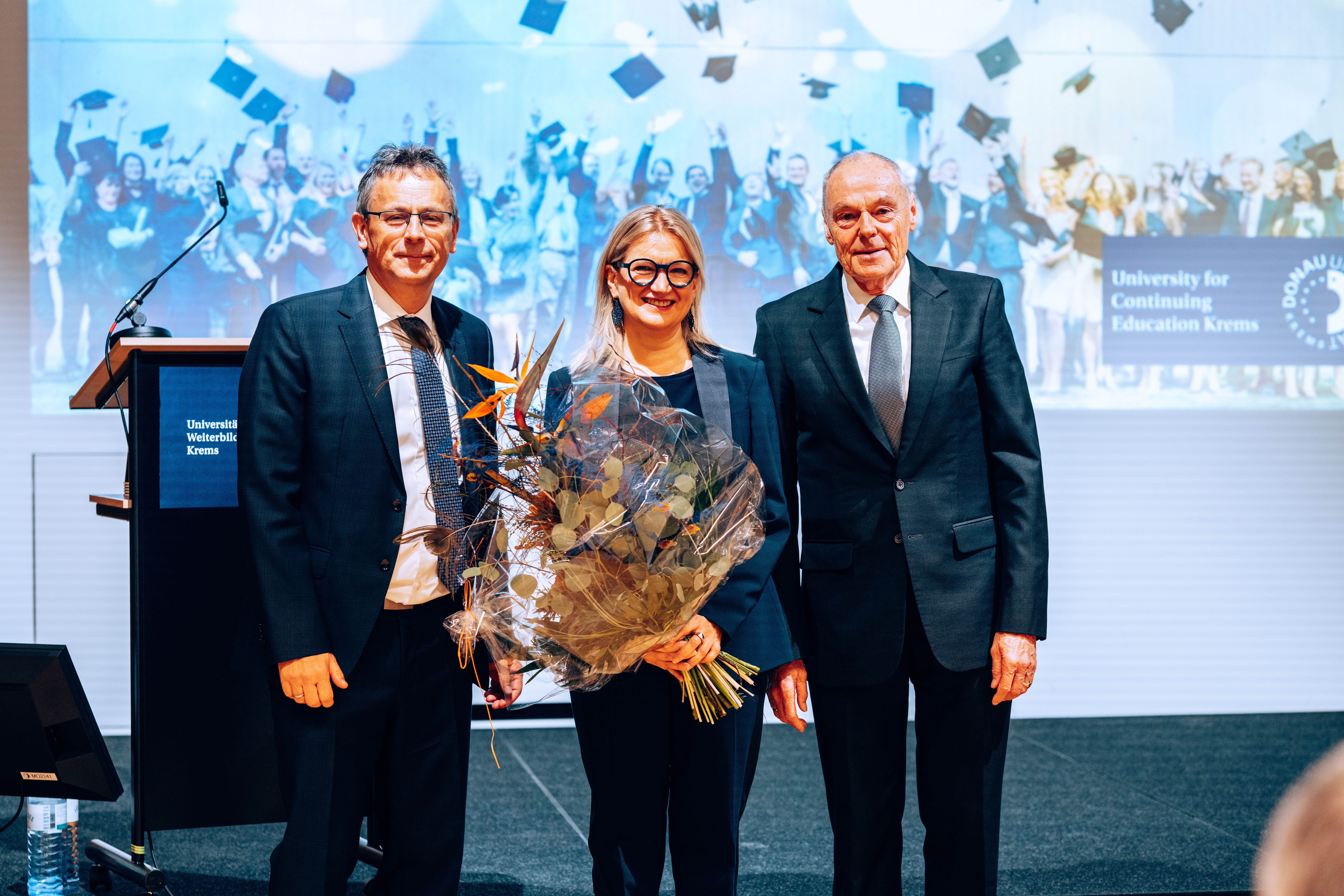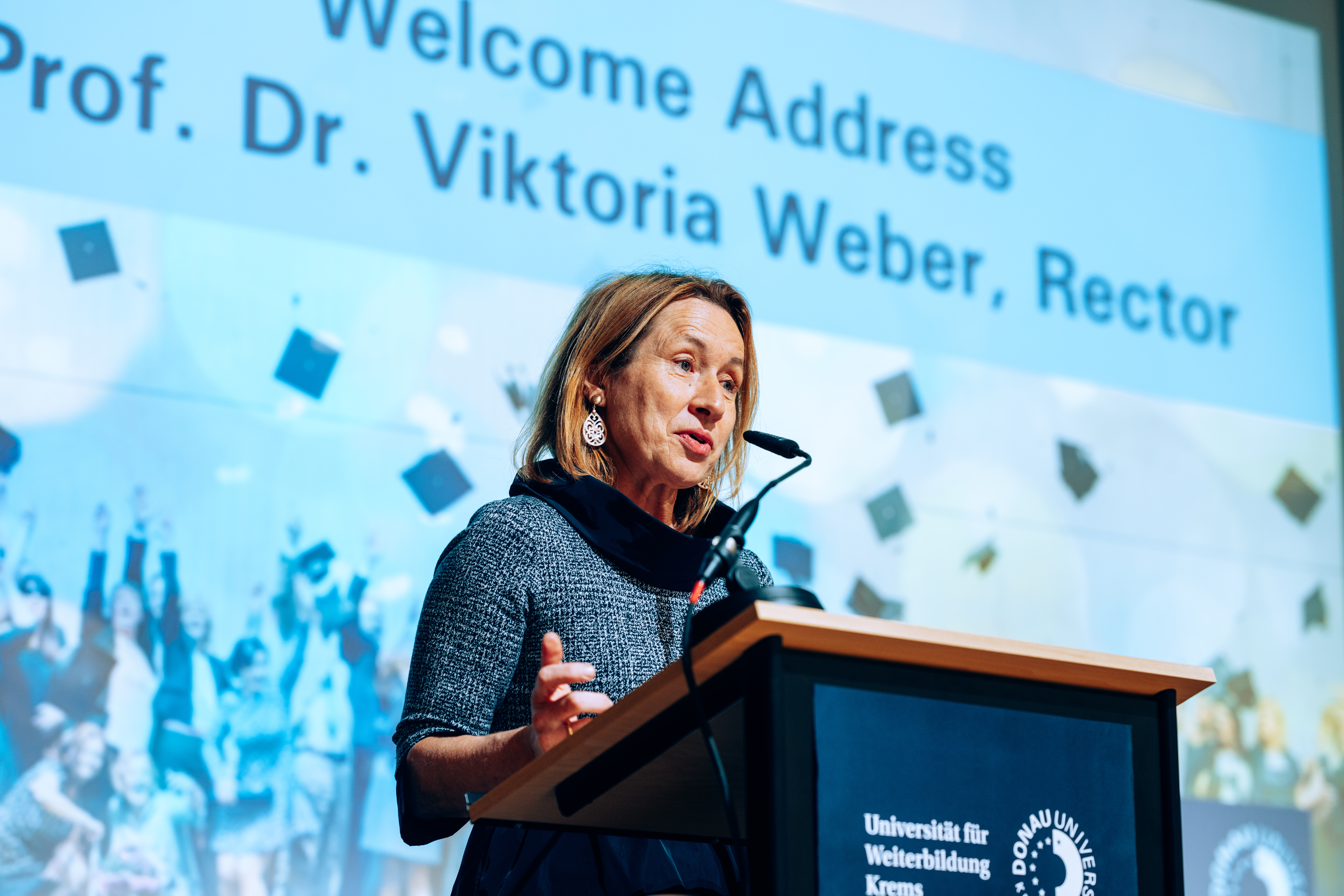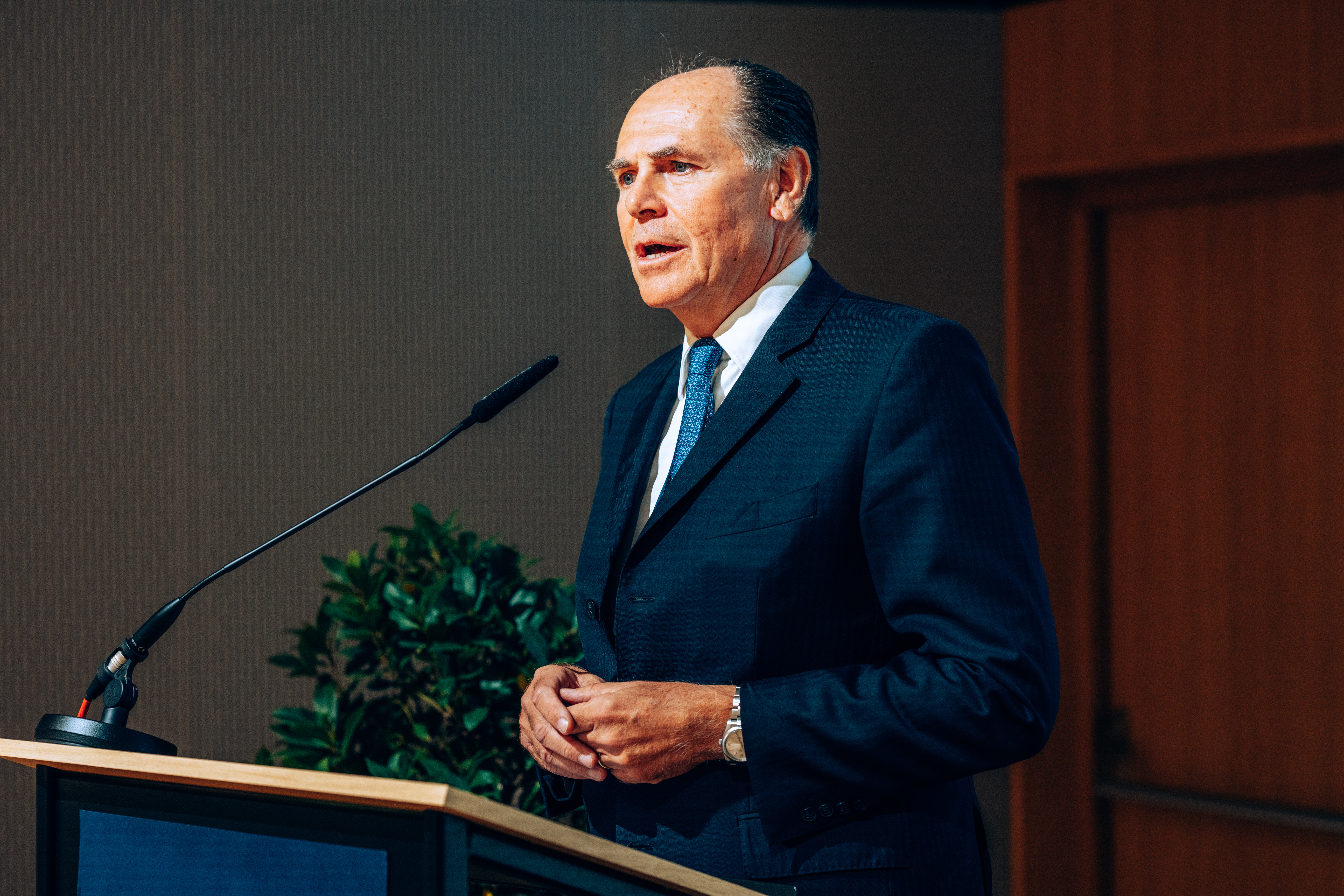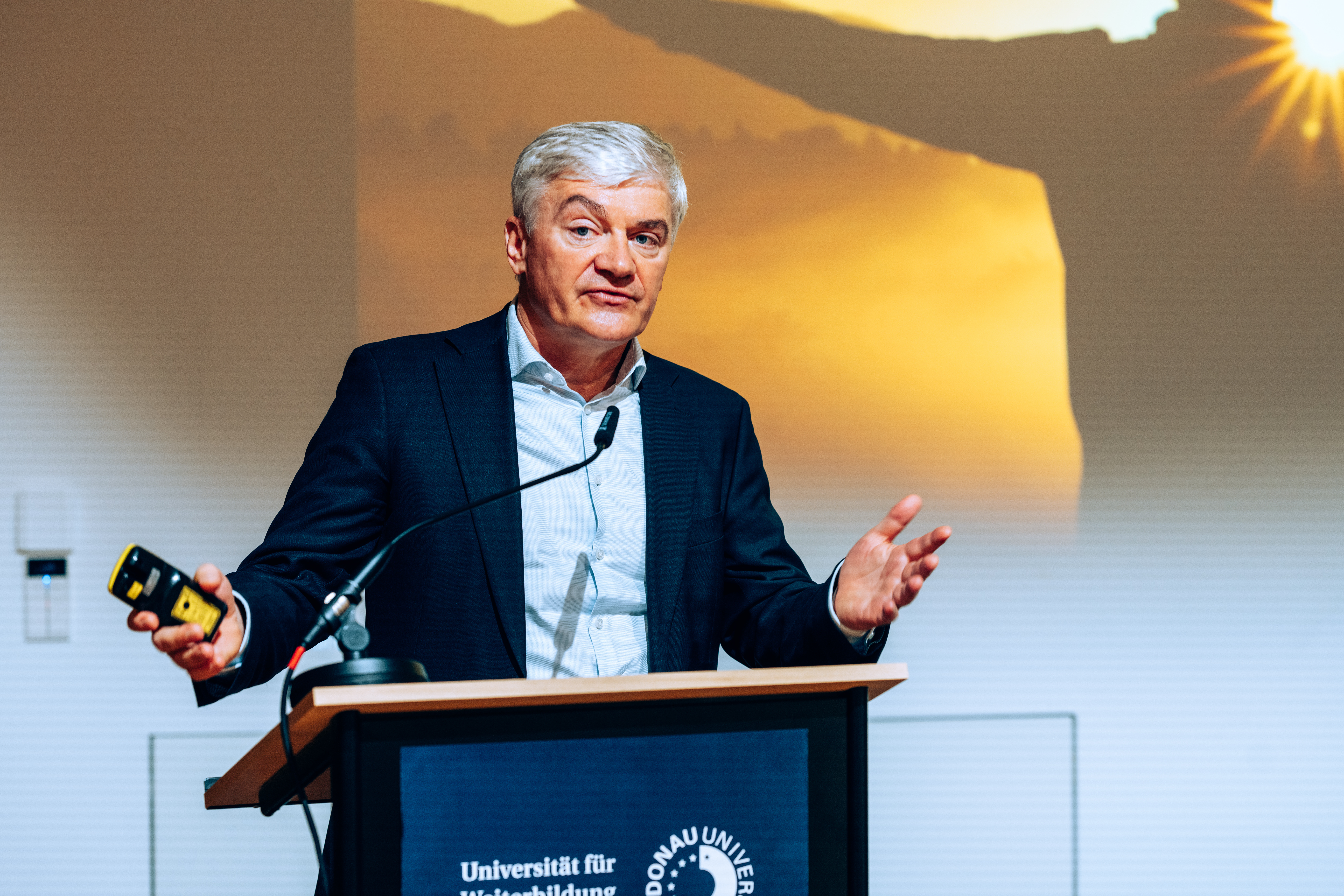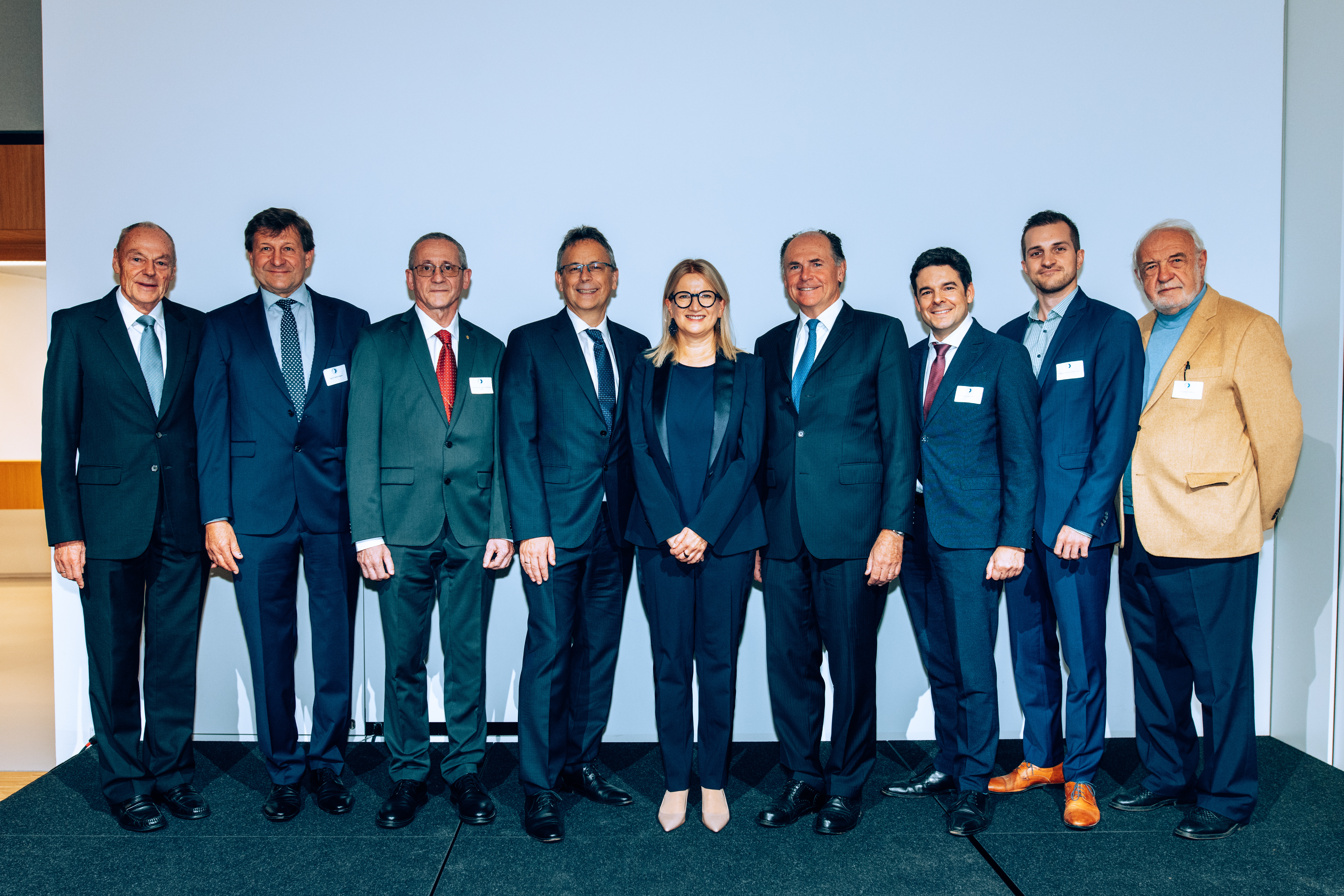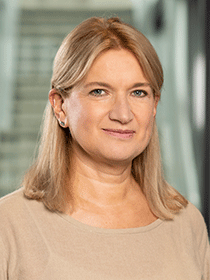The University for Continuing Education Krems celebrated the 25th anniversary of its master’s program in Aviation Management with a festive event in the Campus Hall. Launched in 2000, the program was established at the Department for Economics under the direction of Doris Burger, further developed together with Wolf Müller-Rostin, and has since combined academic continuing education with practical knowledge of the aviation industry.
In her welcome address, Rector Viktoria Weber emphasized that the program has developed into an international platform for aviation executives and professionals, bringing together people from 35 nations to date. She said, “A quarter of a century of MBA Aviation means not only 25 years of academic continuing education, but also 25 years of commitment, enthusiasm, and networking within a global industry.”
Rector Weber thanked Dr. Burger and the team for their many years of commitment and drew a connection to the university's guiding principles: “This program is a cornerstone of our university's academic landscape and embodies the three principles that shape our institution— societal impact, innovation, and quality.” With regard to the anniversary, she expressed her sincere congratulations to everyone who has been or is involved in the development of the program on this 25-year milestone.
As a representative of the main sponsor Frequentis AG and a graduate of the first MBA class, Werner Langhans spoke about the importance of innovation and the willingness to change in a time marked by crises and technological change. “I truly wish you the spirit, the leadership and the energy to believe in positive change”, Langhans concluded, addressing the participants and appealing to them to take responsibility and actively shape the future.
In constant change
Peter Malanik, mastermind of the Aviation Program and Managing Director of Aviation Industry Austria, then looked back on the beginnings and development of the study program. He recalled the initiative of Sepp Fröschl, the first director of Austrian Airlines, who had launched the idea of an academic continuing education program for aviation in Austria. “We had to design a completely new economics-oriented curriculum, in contrast to the internationally renowned technical and operational study programs,” said Malanik. “It was a lot of work, but it was very successful.” From the very beginning, it was crucial to bring science and practice together. “This combination made the program successful – and still does.”
Malanik addressed the changes in the industry. Aviation has developed into a highly dynamic sector in which new technologies, digitalization, and sustainability play key roles. “Aviation is changing dramatically,” emphasized Malanik, who also addressed global shifts: “In 2000, Europe and the US still accounted for around 70 percent of global air traffic. By 2044, it will be the Asia-Pacific region that dominates global air traffic with a market share of almost 45 percent.”
Against this backdrop, Malanik emphasized the continuous development of the MBA program. “Everything that was right 25 years ago was right at that time,” he said. “But of course it had to be adapted and changed to meet today's and tomorrow's requirements. The program will therefore continue to evolve and realign its focus.” Krems was also one of the first universities in Europe to offer such a program, which led to early international visibility.
How digitalization is changing our lives
In his keynote speech “Digital and human: Challenges and concepts for a good life,” philosopher and computer scientist Erich Prem asked what a good life means in an increasingly digitalized society. “We all live digitally mediated lives,” said Prem, “but not everything that is technically possible automatically leads to more self-determination or justice.” He pointed to the profound changes brought about by digital systems and warned of a silent shift in power: “This also means a shift in control, as property in the traditional sense hardly exists anymore. We no longer own, we only rent.” He also referred to the learning potential of high-risk industries, such as aviation, especially with regard to safety.
Prem focused particularly on the ethical dimension of digitalization. Technology alone is not enough to ensure societal advancement. “The digital society is not just about technology,” he said, “but about values, ethics, and our responsibility to shape it.” His central message was that technological innovations must always serve humanity and thus contribute to a good life.
Career stories and a cheerful ending
In the “Careers in Aviation” program segment, graduates provided insights into their career paths and described the significance of their studies for their careers. Several alumni emphasized that the MBA program had provided them with relevant business knowledge and management expertise and prepared them for leadership positions. The value of the network was also repeatedly highlighted: as was also evident at the event, the MBA program has created strong professional and personal international relationships that continue to connect graduates from different years and from all over the world.
To round off the event, “business cabaret artist” Bernhard Baumgartner with his “S.P.A.S.S. method” and his business concept of “disruptiveness” provided a light-hearted conclusion and a perfect landing.
Tags
